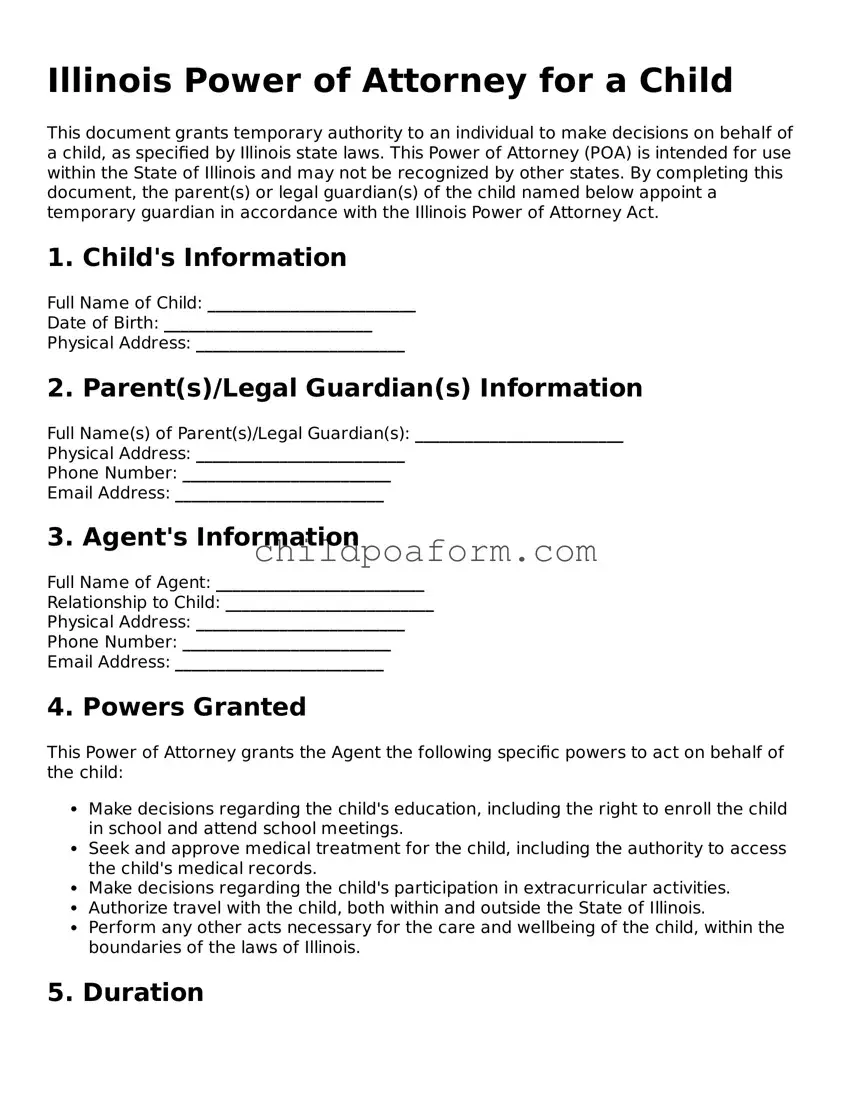Instructions on Utilizing Illinois Power of Attorney for a Child
Filling out the Illinois Power of Attorney (POA) for a child is an important step for ensuring that a responsible adult has legal authority to make decisions on behalf of a minor child when the parent or guardian is not available. This could be due to various reasons such as being out of the country, medical incapacitation, or other circumstances where direct parental decisions cannot be made. The process involves a clear understanding of the necessary information and precise completion of the form to ensure it's legally valid. Here are the steps to follow for filling out the Illinois POA for a child form:
- Download the form: Start by downloading the most current version of the Illinois Power of Attorney for a Child form from a reliable source, ensuring it complies with the state laws.
- Gather required information: Collect all necessary information, including full names and addresses of the parent(s) or current legal guardian(s), the appointed guardian, and the child or children included in the POA document.
- Fill out the child’s information: Enter the child’s full name, date of birth, and address in the designated sections of the form.
- Specify the appointed guardian: Clearly write the name and contact details of the person whom you are appointing as the child’s temporary guardian.
- Define the powers granted: Specify the exact powers being transferred through the POA, such as decisions regarding education, healthcare, or general welfare. Be as precise as possible to avoid any ambiguity.
- Determine the duration: Indicate the start and end dates of the POA's validity. Illinois law permits a POA for a child to be in effect for a maximum of one year, unless extended or revoked.
- Signatures: The form must be signed by the parent(s) or legal guardian(s) in front of a notary public or witnesses, as required by Illinois law. The appointed guardian may also need to sign, acknowledging their acceptance of the responsibilities.
- Notarization: Have the form notarized if required. This step often involves a notary public witnessing the signing of the document and then sealing or stamping it to verify its authenticity.
- Make copies: After completion and notarization, make several copies of the POA document. Provide one to the appointed guardian, keep one for your records, and consider giving copies to relevant entities such as the child’s school or healthcare provider.
Once you have successfully filled out and executed the Illinois POA for a child form, you have taken a significant step in safeguarding the child’s wellbeing during your absence. It's a protective measure that ensures the child continues to receive care and makes daily life decisions without legal hurdles. Remember, this form can be revoked or altered as circumstances change, but until then, it serves as a legal directive for the care of your child.
